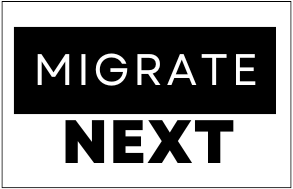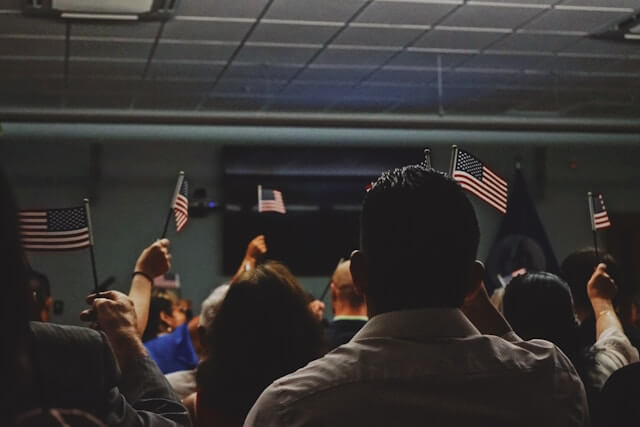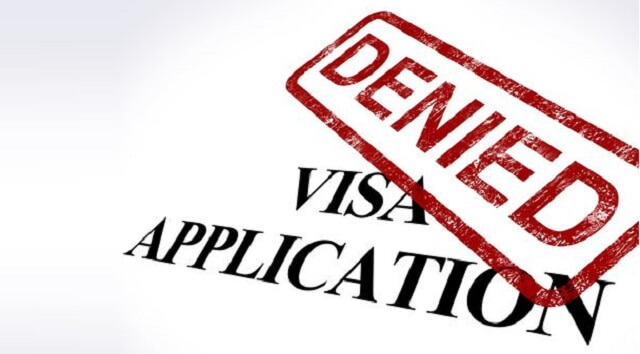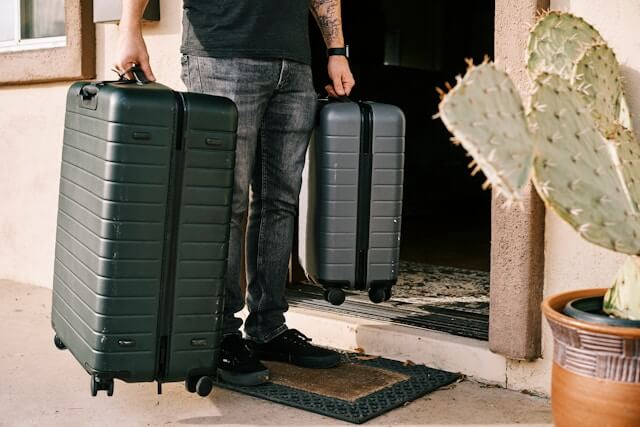Every time you apply for a U.S. Visa, it’s common to feel a little apprehensive about the outcome – “will my application be approved or denied.” After all, it’s a life-changing step towards your dreams which could be studying in the States, working, or simply visiting.
Whatever your reason, the process can be nerve-wracking, especially considering the possibility of denial. And this is owing to the fact that the U.S. Government has stringent policies and regulations that they apply for approving or denying visa applications.
This stems mainly from the need to ensure national security, prevent illegal immigration, and safeguard public welfare. That said, there are possible reasons an applicant’s visa may be denied based on certain U.S. Immigration and Nationality Act laws.
In order to avoid these ineligibilities, it’s important to have a working knowledge of these potential pitfalls and address them proactively in your application.
10 Reasons Why Your U.S. Visa Application Will Be Denied
Here are ten common reasons why your U.S. Visa application might be denied:
1. Insufficient Financial Means
Visa officers need assurance that you can support yourself financially during your stay in the U.S. This includes covering expenses such as accommodation, transportation, and daily living costs.
If your financial documents, such as bank statements or sponsorship letters, don’t show enough funds, it may raise doubts about your ability to sustain yourself.
To avoid this, ensure that your financial documents are comprehensive and clearly show that you are financially stable.
2. Incomplete or Inaccurate Documentation
When applying for a U.S. visa, the U.S. will likely scrutinize your documents thoroughly. In a case where they find you with missing documents or incorrect information, they can deny you a visa on those grounds.
So double-check all forms and documents before submitting them to ensure they are filled out correctly and completely.
If you’re unsure about any requirements, seek guidance from official sources or consult with an immigration attorney.
3. Failure to Meet Visa Requirements
Each type of visa has specific requirements that applicants must meet. For example, student visas may require proof of acceptance to a recognized educational institution, while work visas may require a job offer from a U.S. employer.
Failing to meet these requirements, such as lacking the necessary qualifications or experience, can result in a visa denial.
Before applying, carefully review the eligibility criteria for your desired visa category and ensure that you meet all requirements.
4. Previous Immigration or Visa Violations
If you have violated the terms of a previous visa, such as overstaying your authorized period of stay or working without authorization, you may be deemed ineligible for future visas.
Visa officers closely scrutinize the immigration history of applicants to assess their compliance with U.S. immigration laws.
If you have any past violations, be honest and transparent about them in your application. If possible, provide explanations for the circumstances surrounding the violations and demonstrate that you have learned from your mistakes.
5. Criminal Record
Certain criminal convictions can render you inadmissible to the United States and lead to a visa denial.
Offenses like fraud, theft, or violent crimes, are particularly concerning to visa officers. So are drug-related offenses, including possession or trafficking. These can all result in a visa denial.
Before applying for a visa, carefully review your criminal record and seek legal advice if you have any convictions. Depending on the nature and severity of the offense, you may be eligible for a waiver or other forms of relief.
6. Misrepresentation or Fraud
Providing false information or misrepresenting facts in your visa application is a serious offense that can have severe consequences.
Visa officers have access to extensive databases and resources to verify the information provided by applicants. Any discrepancies or inconsistencies discovered during the review process can lead to a denial of your visa application.
To avoid this, be completely truthful and transparent in your application. Double-check all information for accuracy and consistency before submitting your application.
7. Lack of Ties to Home Country
Visa officers need assurance that you have strong ties to your home country and are likely to return after your stay in the U.S. This is essential to prevent visa misuse, such as overstaying or attempting to immigrate illegally.
Factors such as stable employment, property ownership, family ties, and community involvement can demonstrate strong ties and increase the likelihood of visa approval.
If on the other hand, you’re unable to demonstrate sufficient ties, it may raise doubts about your intention to return home and lead to a visa denial. Ensure you study these visa interview questions to know how best to respond.
8. Health Concerns
Certain health conditions may render an individual inadmissible to the United States.
This includes communicable diseases that pose a public health risk or conditions that require extensive medical treatment that could burden the U.S. healthcare system.
Mental health disorders can render you inadmissible to the United States and lead to a visa denial. It’s advisable to address any health concerns and ensure that you meet the health requirements for entry into the United States.
9. Security Concerns
Visa applicants are subject to thorough background checks to identify any associations with terrorist organizations or activities deemed a threat to national security.
Any indication of involvement in criminal or terrorist activities can lead to a visa denial and may result in further investigation by law enforcement agencies.
To avoid potential security concerns, be transparent and cooperative throughout the visa application process. Provide accurate information about your background, including employment history, travel patterns, and affiliations with organizations or groups.
10. Poor Interview Performance
For certain visa categories, applicants are required to attend an interview at the U.S. Embassy or Consulate.
During the interview, visa officers assess your credibility, intentions, and eligibility. Which is why you need to put your best foot forward during the interview.
If you put up a poor performance or are unable to answer questions satisfactorily, you may set yourself up for a potential visa denial.
Get the Approval You Desire
The US immigration law allows consular officers in the US. Embassies to vet and approve or deny visa applications as they see fit.
But they don’t carry out this duty without following clear rules and regulations. The law itself outlines certain ineligibilities that may cause an applicant’s visa to be denied. And the officers follow this to the latter.
While a visa denial can be a sad occurrence, the consulate usually provides a comprehensive reason for such denial.
In this case, you can either reapply or apply for a waiver especially if the ineligibility is not permanent.
To avoid such harrowing experience, it’s important to take note of these visa denial reasons, so you can improve your chances of a successful visa application.
In any case, we recommend that you approach the process with honesty, diligence. With these, you can expect your visa to be approved rather than denied.
Has your United States visa application been denied before? If yes, what were their reasons? Share with us.











